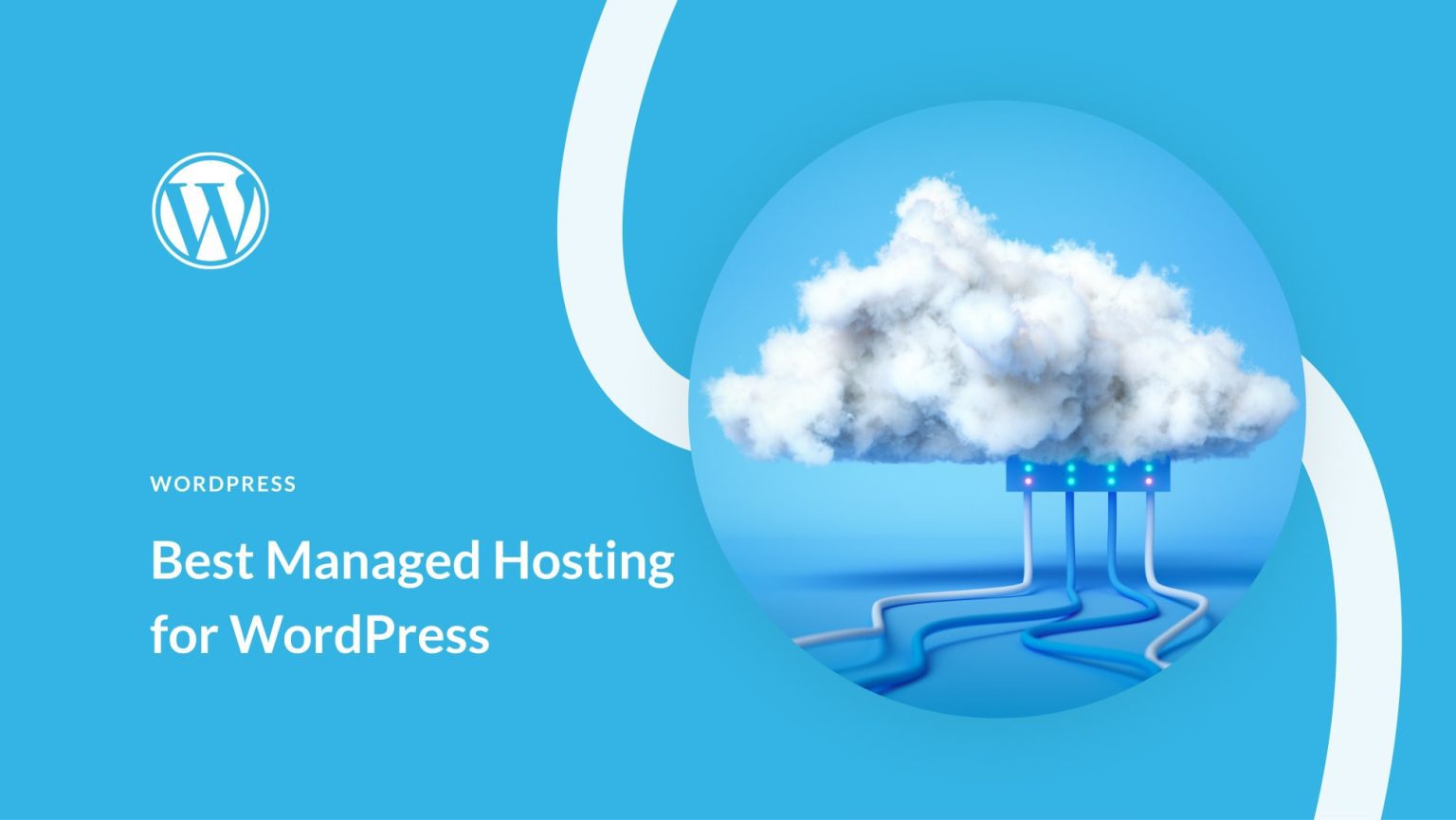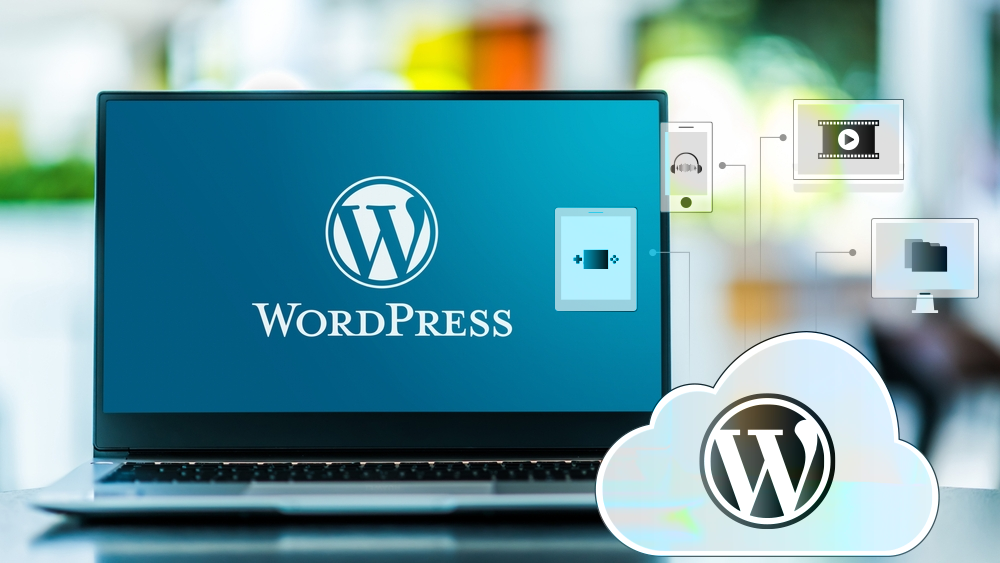Picking the perfect web hosting for your WordPress site might feel overwhelming at first. With so many options out there, it’s easy to get lost in the technical jargon. But don’t worry! The right hosting can make a huge difference in your website’s speed, security, and overall performance. Whether you’re just starting out or running a busy online store, understanding what to look for helps you make smarter choices. Think of it as finding the best home for your digital presence—comfortable, secure, and built to grow with you.
Key Factors to Consider When Selecting Web Hosting for WordPress

When it comes to choosing web hosting for your WordPress site, several key factors come into play. Let’s break down the most important ones so you can make an informed decision:
- Performance & Speed: Your visitors won’t wait around for a slow website. Look for hosts that offer solid uptime (ideally 99.9%) and fast loading times. Features like SSD storage, CDN integration, and caching can boost your site’s speed significantly.
- Security Features: WordPress sites are popular targets for hackers. Ensure your host provides security measures like SSL certificates, regular backups, malware scanning, and firewalls. These protect your site and your visitors’ data.
- Ease of Use & Support: Especially if you’re not a tech expert, a hosting provider with a user-friendly control panel (like cPanel) and 24/7 customer support can save you headaches. Look for hosts with good reviews on their customer service quality.
- Scalability: Will your host grow with your website? Choose a provider that offers plans you can upgrade to easily as your traffic increases or your needs change.
- Pricing & Value: While it’s tempting to go for the cheapest option, consider the value you’re getting. Look for transparent pricing, renewal rates, and what features are included. Sometimes paying a bit more upfront saves you from headaches later.
- Specific WordPress Features: Some hosts offer one-click WordPress installs, automatic updates, staging environments, and specialized caching plugins. These features can streamline your workflow and improve your site’s performance.
In summary, choosing the right hosting isn’t just about finding the cheapest plan. It’s about finding a reliable, secure, and scalable solution tailored to your website’s needs. Take your time to research, compare options, and read reviews—your website’s success depends on it!
3. Types of Web Hosting Suitable for WordPress Sites

When it comes to choosing the right web hosting for your WordPress site, it’s important to understand the different types available. Each has its own advantages and considerations, depending on your website’s size, traffic, and future growth plans.
Shared Hosting is often the starting point for many beginners. It’s affordable and easy to set up, with multiple websites sharing the same server resources. This is perfect if you’re just getting started or running a small blog or business site. However, because resources are shared, your site’s performance can be affected if other sites on the same server experience traffic spikes.
VPS Hosting (Virtual Private Server) offers a step up in performance and control. It’s like having a dedicated portion of a server allocated just for your site. You get more resources, better stability, and more flexibility in configuring your environment. It’s great if your site is growing and you need more consistent performance without the cost of a dedicated server.
Managed WordPress Hosting is specifically optimized for WordPress websites. Providers handle most of the technical aspects like updates, security, and backups. This option is ideal for those who want a hassle-free experience with enhanced speed and security tailored for WordPress. Think of it as having your hosting provider as your personal
Dedicated Server Hosting is the most powerful option, giving you an entire server dedicated solely to your website. This is suitable for high-traffic sites, e-commerce stores, or enterprise-level websites. While it offers maximum control and resources, it also requires more technical know-how and comes with a higher price tag.
In summary:
- Shared Hosting: Budget-friendly, easy to start, suitable for small sites.
- VPS Hosting: More resources, better performance, good for growing sites.
- Managed WordPress Hosting: Optimized for WordPress, hassle-free, great for non-tech-savvy users.
- Dedicated Server: Maximum power and control, for large and high-traffic sites.
Choosing the right type depends on your current needs and future plans. If you’re just starting out, shared hosting might be enough. But if you anticipate growth or need more performance, consider VPS or managed hosting. It’s all about finding the sweet spot between cost, control, and performance.
4. Top Features to Look for in WordPress Hosting Providers
Not all hosting providers are created equal, especially when it comes to hosting WordPress sites. To ensure your website runs smoothly, securely, and scales effortlessly, look for these key features:
1. Speed and Performance
Website speed is a critical factor for user experience and SEO. Look for hosts that offer:
- SSD Storage: Faster read/write speeds.
- Server-Level Caching: Improves load times.
- Content Delivery Network (CDN) Integration: Distributes your content globally for quicker access.
2. Security Measures
Ensure your hosting provider prioritizes security with features like:
- Free SSL Certificates: Encrypts your site data.
- Firewall and DDoS Protection: Shields your site from attacks.
- Automatic Backups: Regular backups to recover from issues.
3. Scalability Options
Your website will likely grow, so choose a provider that makes upgrades easy without migrating to a new host. Look for features like:
- Easy upgrading paths (e.g., from shared to VPS).
- Flexible resource allocation.
4. Customer Support
Reliable support can save you a lot of headaches. Look for providers offering:
- 24/7 Support: Availability when you need help.
- Multiple Support Channels: Live chat, phone, ticket system.
- Knowledge Base and Tutorials: Resources to troubleshoot common issues.
5. WordPress-Specific Features
Some hosts offer features tailored for WordPress users, such as:
- One-Click WordPress Install: Simplifies setup.
- Automatic Updates: Keeps WordPress core, themes, and plugins current.
- Optimized Environment: Servers configured for WordPress performance.
6. Uptime Guarantee
Reliable hosting should ensure your site is available when visitors come. Aim for providers with at least 99.9% uptime guarantee.
7. Pricing and Renewal Terms
While affordability is important, also check renewal rates and any hidden fees. Sometimes initial discounts expire, so understanding the long-term costs helps prevent surprises.
In essence, the best WordPress hosting provider aligns with your website’s needs, offers robust features, and provides excellent support. Do your research, read reviews, and consider starting with a provider that offers a money-back guarantee to test their service risk-free.
5. Performance and Speed Optimization for WordPress Websites
Let’s face it — no one likes a slow website. If your WordPress site takes ages to load, visitors might get frustrated and bounce away before they even see what you have to offer. That’s why performance and speed are such critical aspects when choosing the best web hosting for your WordPress site.
So, what makes a hosting provider great in terms of speed? Here are some key factors to look out for:
- Server Location: Hosting servers closer to your target audience can significantly cut down load times. For example, if most of your visitors are in Europe, choose a host with data centers nearby.
- Content Delivery Network (CDN): A CDN distributes your website’s content across multiple servers worldwide, ensuring visitors load content from the closest server. Many top hosts include integrated CDN options or support easy setup.
- Caching Solutions: Caching temporarily stores parts of your website to serve them faster to visitors. Look for hosts that offer built-in caching or support popular caching plugins like W3 Total Cache or WP Super Cache.
- Server Resources: Adequate CPU, RAM, and SSD storage can make a huge difference. SSDs (Solid State Drives) are much faster than traditional HDDs, leading to quicker data retrieval.
- Optimized Server Environment: Some hosts use technologies like NGINX instead of Apache, or implement PHP 8+ and HTTP/2, which improve performance substantially.
Beyond the hosting environment itself, there are some best practices you can adopt:
- Compress Images: Use tools or plugins to optimize images without sacrificing quality.
- Minify CSS, JavaScript, and HTML: Removing unnecessary characters reduces file sizes and speeds up page loading.
- Lazy Loading: Load images and videos only when they’re about to be viewed, not all at once on page load.
In a nutshell, the best WordPress hosting isn’t just about having a fast server — it’s about creating an environment that leverages the latest technologies and best practices to keep your site speedy and responsive. Remember, a faster site improves user experience, boosts SEO rankings, and even increases conversions. So, prioritize performance when choosing your host, and don’t be afraid to ask providers about their speed optimization features!
6. Security Measures Essential for WordPress Hosting
Security is often an overlooked aspect when choosing a web host, but it’s absolutely crucial — especially for WordPress sites, which are common targets for hackers. A compromised website can lead to data loss, damage to your reputation, and even legal issues. So, what should you look for in a hosting provider to ensure your site stays safe?
Here are the essential security measures that the best WordPress hosting providers typically offer:
- Regular Backups: Automated backups allow you to restore your site quickly if anything goes wrong. Look for hosts that perform daily backups and store copies off-site.
- SSL Certificates: Encrypt your website with HTTPS. Many hosts include free SSL certificates (like Let’s Encrypt), which not only secure data transfer but also boost your SEO.
- Firewall and Malware Scanning: A robust firewall blocks malicious traffic before it reaches your site. Regular malware scans detect and remove malicious code early.
- Secure Server Environment: Features like isolated accounts, up-to-date server software, and protection against DDoS attacks add layers of security.
- Automatic Security Updates: WordPress core, themes, and plugins frequently release updates that patch vulnerabilities. The hosting provider should support automatic updates or notify you promptly.
- Two-Factor Authentication (2FA): Adds an extra layer of login security for your hosting account and WordPress admin panel.
- Security Plugins and Tools: Many hosts support or come bundled with security plugins like Wordfence or Sucuri Security, providing real-time threat monitoring.
It’s also important to follow good security practices on your end:
- Use Strong Passwords: Avoid default or weak passwords; consider a password manager to generate and store complex passwords.
- Limit Login Attempts: Prevent brute-force attacks by limiting the number of login attempts.
- Disable File Editing: Turn off the file editing feature in WordPress to prevent hackers from modifying files if they gain access.
- Monitor Activity: Keep an eye on user activity logs to spot suspicious behavior early.
Choosing a host that prioritizes security is like having an insurance policy for your website. It provides peace of mind and helps protect your investment. Remember, security isn’t a one-time setup — it’s an ongoing process. Regular updates, backups, and staying informed about emerging threats are key to keeping your WordPress site safe and sound.
7. Customer Support and Technical Assistance Importance
When it comes to running a successful WordPress website, having reliable customer support and technical assistance isn’t just a bonus — it’s a necessity. Think about it: your site is your digital storefront, and when something goes wrong, you want help that’s quick, knowledgeable, and friendly. The last thing you want is to be left hanging or dealing with unhelpful automated responses.
Good customer support can make all the difference, especially if you’re not a tech wizard. Whether it’s troubleshooting plugin conflicts, restoring backups, or fixing server issues, expert support can save you hours of frustration. Plus, fast assistance means less downtime, which keeps your visitors happy and maintains your site’s reputation.
So, what should you look for in a hosting provider’s support?
- Availability: 24/7 support is ideal, especially if your website is business-critical or attracts international visitors across different time zones.
- Communication channels: Multiple options like live chat, phone support, and email ensure you can reach out in the way that’s most convenient for you.
- Knowledge and expertise: Support staff should be familiar with WordPress-specific issues, not just general server problems.
- Response times: Fast replies mean your issues get resolved quickly, reducing downtime and potential revenue loss.
Many top-tier hosts also offer a knowledge base or community forums, which can be a treasure trove of DIY solutions. But remember, sometimes you need that human touch — and that’s where quality support shines.
In the end, a hosting provider that prioritizes stellar customer support demonstrates that they’re committed to your success. It’s a sign that they stand behind their service and are willing to be there when you need them most. So, don’t overlook this aspect when choosing your WordPress host — it’s just as important as speed or price.
8. Pricing and Value for Money in WordPress Web Hosting
Let’s talk about pricing — because at the end of the day, your budget matters. But here’s the thing: the cheapest option isn’t always the best, especially for a WordPress website that you want to grow and succeed. Finding a good balance between cost and value is key.
Most hosting providers offer a range of plans, from entry-level shared hosting to premium managed WordPress hosting. Here’s a quick breakdown:
| Type of Hosting | Ideal For | Typical Price Range | Pros | Cons |
|---|---|---|---|---|
| Shared Hosting | Beginners, small blogs, hobby sites | $2 – $10/month | Affordable, easy to set up | Shared resources can affect performance |
| VPS Hosting | Growing websites, small businesses | $20 – $80/month | More control, better performance | Requires some technical knowledge |
| Managed WordPress Hosting | Business sites, high-traffic blogs | $30 – $150/month | Optimized for WordPress, automatic updates, security features | Higher cost, but often worth it for peace of mind |
So, how do you decide what’s worth spending? Consider these factors:
- Features included: Free SSL, daily backups, staging environments, security tools — these add value and save you money down the line.
- Performance: Faster sites lead to happier visitors and better SEO rankings. Sometimes, paying a bit more yields substantial performance gains.
- Support quality: As we discussed earlier, good support can prevent costly downtime and headaches.
- Scalability: Will the plan grow with your site? It’s better to start with a plan that can expand rather than migrating later.
Remember, investing in quality hosting is an investment in your website’s future. The right plan balances affordability with features and support. Cheap may seem attractive initially, but if it leads to slow load times, frequent outages, or poor support, it’s not really a bargain. Look for providers that offer transparent pricing and clear features so you know exactly what you’re getting. In the long run, paying a little more for a reliable, feature-rich hosting service can save you time, money, and stress — making it well worth the investment.
9. Common Mistakes to Avoid When Choosing WordPress Hosting
Picking the right web hosting provider for your WordPress site can feel overwhelming, especially with so many options out there. It’s easy to fall into some common pitfalls that might seem minor but can have a big impact on your website’s performance, security, and growth. Let’s go over some of the most frequent mistakes so you can steer clear of them.
1. Prioritizing Price Over Quality
While budget is definitely an important factor, opting for the cheapest hosting plan often means sacrificing essential features like security, speed, and customer support. Remember, your website’s performance can directly affect your user experience and SEO rankings. Instead, look for a hosting provider that offers good value — balancing affordability with reliable features.
2. Ignoring Scalability
Many new website owners start small but forget about the future. Choosing a host that doesn’t allow easy upgrades can leave you stuck or force an inconvenient migration later. Think about your growth plans and select a provider that offers scalable plans so your website can expand without headaches.
3. Overlooking Security Features
Security is crucial, especially if you’re handling sensitive data or e-commerce transactions. Some hosting providers skimp on security features like SSL certificates, malware scanning, or regular backups. Always verify that your host prioritizes security — it’s worth paying a bit more to keep your site and visitors safe.
4. Not Checking Support Options
When something goes wrong, responsive and helpful customer support can save the day. Don’t assume all hosts provide 24/7 support or multiple contact channels. Read reviews and ask questions before signing up to ensure you’ll receive timely help when needed.
5. Ignoring Performance Factors
Speed matters — a slow website can frustrate visitors and hurt your SEO. Look for hosts that offer fast servers, SSD storage, and caching solutions. Using tools like Google PageSpeed Insights or GTmetrix can also help you evaluate hosting performance.
6. Forgetting About Backup and Uptime Guarantees
Accidents happen, and your website could be compromised or go down unexpectedly. Ensure your hosting provider offers regular backups and a solid uptime guarantee (preferably 99.9% or higher). This way, you’ll be prepared to recover quickly if issues arise.
10. Conclusion and Recommendations for the Best WordPress Web Hosting Providers
Choosing the right WordPress hosting provider is a critical step toward building a successful website. The best hosting solutions combine speed, security, scalability, excellent support, and affordability. Remember to consider your current needs and future growth when making your decision.
Based on our research and industry reputation, here are some top recommendations:
| Hosting Provider | Best For | Key Features |
|---|---|---|
| SiteGround | Performance & Support | Excellent customer support, top-notch security, daily backups |
| Bluehost | Beginners & Small Businesses | Easy WordPress integration, free domain, good uptime |
| WP Engine | High Performance & Scalability | Managed WordPress hosting, fast speeds, staging environments |
| HostGator | Affordability & Flexibility | Cheap plans, unmetered bandwidth, 24/7 support |
| Kinsta | Premium Performance & Security | Premium infrastructure, daily backups, expert support |
Ultimately, the best host for your WordPress site depends on your specific needs, budget, and growth plans. Take the time to compare features, read reviews, and even test support responsiveness before making your final choice. With the right hosting provider, your website will be well-equipped to thrive and grow!


